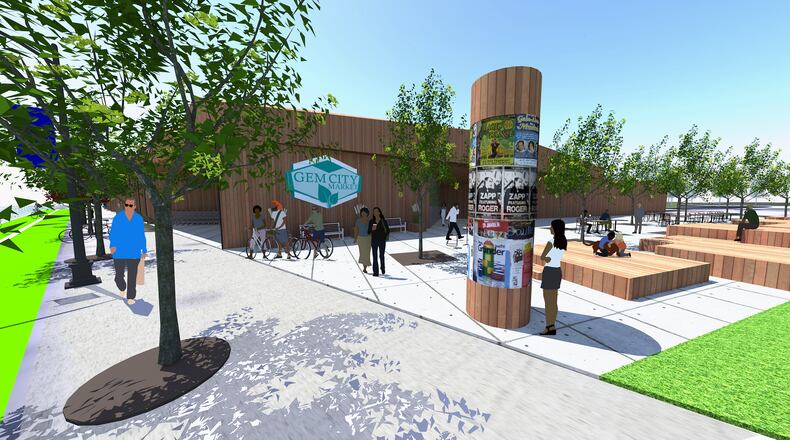Supporters will be organizing house parties and canvassing the neighborhoods in the market trade area to raise awareness about the project and try to get people to open their wallets and buy a share.
The long-term vision is for the Gem City Market to be the first of a chain of community-owned grocery stores, which would be smaller, satellite stores in other food desert areas, said Lela Klein, executive director of the Greater Dayton Union Co-op Initiative, which is behind the market project.
RELATED: Proposed grocery co-op has brisk sales of shares
Large sections of Dayton, especially on the west side, are food deserts, where residents have no or very limited access to fresh and nutritious foods, said Klein.
Some Daytonians primarily do their grocery shopping at dollar stores, and while some of these stores have decent products and deals, they lack fresh food, Klein said.
“In our city, we shockingly learned last year that we are the second-worst city in the nation for food hardship among households with children,” she said.
The Gem City Market will sell affordable items for people on a budget as well as specialty, organic foods for customers with higher incomes, supporters said.
The market will be owned by workers and community members who buy shares, which cost $100. Low-income residents, however, may be eligible to buy subsidized shares for $10.
RELATED: Food co-op grocery proposed for northwest Dayton
The Gem City Market held another community meeting in northwest Dayton on Thursday, which was attended by around 150 people.
Market advocates will be going door to door beginning later this month to speak with community members to educate them about the initiative and encourage the purchase of market shares.
“A lot of people believe we’re already open — that’s how much the word’s been out,” said Kenya Baker, who is a volunteer outreach coordinator with the union co-op initiative.
Supporters also will be hosting house parties partly to get feedback from community members and to facilitate discussion about the vision for the market and the purpose it would serve.
“This is really about building community, and the way that we do that is by … hopefully welcoming (people) into our homes, breaking bread and talking …” said Etana Jacobi, treasurer with the food co-op initiative and manager of the Hall Hunger Initiative, which is assisting with the project.
Building, stocking and opening the market is expected to cost about $3.9 million. The grocery store will have a roughly 15,000-square-foot footprint, with about 10,000 square feet of selling space.
RELATED: How soon could new grocery store open on city’s west side?
Klein said the city’s west side has not had a full-service grocery store since the Kroger on Gettysburg Avenue closed in 2008.
Supporters originally looked at sites along Gettysburg but later determined that lower Salem Avenue was a better location since it has more of the population density needed for the food co-op to succeed, Klein said.
Studies have shown that living near a grocery store helps the health of residents, she said.
About the Author

